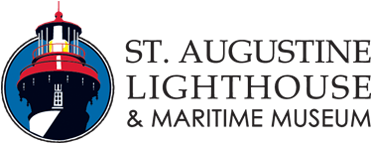The state of Florida is considering a Citizen Archaeology Permit program, similar to the Isolated Finds program it experimented with and abandoned a few years ago. The idea is that private citizens could collect isolated artifacts from public lands and report them to the state, an activity that is usually illegal unless conducted under a state permit by archaeologists. The problems are many: under the original policy the finds were rarely reported or reported with little useful detail, the policy lead to widespread looting of archaeological sites, and the policy prevented law enforcement officers from protecting archaeological sites from looting as it provided a “cover” for looters. This program would extensively impact archaeological sites on state lands.
To learn more, read the official statement put out by FPAN (Florida Public Archaeology Network) here.
If you’d like a little more background, you can read a recent blog post by Jeff Moates, Director of FPAN’s West Central Region, here.
If you are a friend of Florida archaeology, YOU CAN HELP!! Please voice your opinion on this issue to Florida legislators, and tell them to oppose the implementation of the proposed Citizen Archaeology Permit program. State Senator Alan Hays has invited Floridians from across the state to express their views to him. You may contact him here, and you can see the letter I wrote him below. If you are from out of state, feel free to share your views with him and let him know that Florida’s archaeological heritage is one of the reasons you like to visit Florida.
To find the state legislator for your area and share your thoughts, visit this page.
Click below to see the letter that I have sent my legislators.
My letter to Senator Alan Hays:
Hello Senator Hays,
I am not a constituent of your district but a concerned Florida native and citizen. I am writing to you about the proposed Citizen Archaeology Permit program, which in effect is a proposal to reinstate the Isolated Finds policy that was regulated by the Division of Historical Resources/Bureau of Archaeological Research back in the 1990s.
I am an underwater archaeologist living and working in St. Augustine, and I run a research and public education program based at the St. Augustine Lighthouse & Museum. When I was in graduate school at FSU, I lived in Tallahassee and often worked closely with a number of state archaeologists. I heard first hand from state archaeologists many of the problems with the Isolated Finds Policy. Under this program, individuals, usually river divers, could collect artifacts from state lands (usually river bottoms), an activity that is usually illegal without a permit. The idea was that these folks could then report their finds, which were supposed to be limited to isolated objects and not archaeological sites, to the Bureau, and provide useful information to archaeologists. The problem (or rather one of many) is that there is no way to police this activity and ensure that the divers were truly collecting isolated objects, rather than looting artifacts from an archaeological site. Indeed it is unrealistic to expect most laymen to even be able to differentiate between an archaeological site and an isolated find, as there are often many other indications that may be more subtle (changes in sediment stratigraphy, organic remains, landscape features). It became apparent that many divers were taking advantage of this policy to loot archaeological sites and get away with it. Also it seemed clear that such finds were usually not reported, or “under-reported,” which means providing only limited information compared to the substantial research reports that would be submitted to the state after a scientific, archaeological study. The result of this policy is that a large amount of information about Florida’s past and the lifeways of prehistoric Floridians has been lost forever. I came to this belief not only by seeing the results of this endeavor first-hand, and from talking to numerous state archaeologists, but also from talking to local law enforcement officers, who lamented that this policy effectively made it impossible to address illegal looting.
There are, however, many successful alternatives to the failed Isolated Finds Policy. If interested members of the public are interested in working on archaeological sites, experiencing the thrill of discovery, and contributing to our knowledge of Florida’s history and prehistory, there are many constructive avenues to do so. One great example was the Aucilla River Prehistory Project run by the University of Florida. This wonderful research project, which was funded in part by Historic Preservation Special Category Grant funding in the 1990s, brought dozens and dozens of local river divers together with underwater archaeologists to work hand in hand on underwater archaeological sites. Hundreds of individuals got to participate in various aspects of this project over the years, and with its successor the PaleoAucilla Prehistory Project run by FSU. But this is not the only opportunity for citizens to work with archaeologists, and in fact there are many more such opportunities today. My own organization uses hundreds of volunteers to conduct diving on historic shipwreck sites, and excavation, artifact recovery, and artifact cleaning in the lab. Also here in St. Augustine is the St. Augustine Archaeological Association or SAAA, which pairs volunteers with the City Archaeologist to conduct much needed fieldwork. The SAAA is a chapter of the Florida Anthropological Society, which coordinates similar partnerships throughout the state. And universities like University of West Florida and others across the state provide similar opportunities for members of the public, and there is even a state-wide organization known as FPAN (Florida Public Archaeology Network) whose sole mission is reaching out to the public to provide archaeological education and experiences for all who are interested. Their regional offices are located throughout Florida and anyone who contacts them asking about volunteer opportunities is put into contact with local archaeologists who benefit from the offered help. There are no shortages of ways for Florida’s citizens and visitors to participate in legitimate archaeological fieldwork almost anywhere in the state.
I urge you to do everything you can to prevent the implementation of the Citizen Archaeology Permit program. This idea has been tried before and it resulted in widespread illegal looting of archaeological sites, and the loss of precious and irreplaceable information about Florida’s past. For those interested in archaeology who which to participate, there are numerous opportunities across the state on land and underwater which will help professional archaeologists and all of us learn more about the rich history and prehistory of our state. Thank you very much for your interest in and support of Florida archaeology.
I’ve sent similar letters to my own legislators. Please help save Florida archaeology and do the same!

